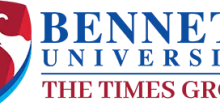Introduction
Managing people is at the heart of any successful organization. In today’s fast-paced corporate environment, companies increasingly value Human Resource (HR) professionals who can recruit the right talent, foster employee engagement, and drive organizational growth. An MBA in HR Management is a specialized postgraduate program designed to develop skilled HR leaders who can manage human capital effectively.
In this article, we’ll explore everything you need to know about an MBA in HR Management — including course details, top skills you’ll learn, career opportunities, salaries, and future trends.

















What is MBA in HR Management?
An MBA in Human Resource Management is a two-year postgraduate program that focuses on building leadership, people management, and strategic decision-making skills. It prepares students to handle functions like recruitment, employee relations, training and development, compensation management, performance management, and organizational development.
The curriculum also emphasizes legal compliance, ethical practices, diversity management, and the use of technology in HR functions — preparing students for leadership roles in HR departments across industries.
Why Choose MBA in HR Management?
There are several compelling reasons to pursue an MBA in HR:
1. High Demand for HR Professionals
Organizations globally are investing heavily in talent acquisition, employee engagement, and retention strategies, leading to a steady demand for skilled HR managers.
2. Strategic Role in Business
HR is no longer just about hiring and firing; it plays a strategic role in shaping company culture, driving innovation, and achieving business goals.
3. Career Versatility
An MBA in HR allows you to work in a wide range of industries including IT, healthcare, finance, retail, education, and manufacturing.
4. Competitive Salaries
HR professionals, especially those in leadership roles, command attractive salary packages and growth opportunities.
5. People-Centric Career
If you enjoy working with people, solving conflicts, and building positive workplaces, HR offers a deeply rewarding career path.

















Course Structure: Subjects You Will Study
The MBA in HR Management program typically spans four semesters and combines business management fundamentals with specialized HR subjects.
Core Subjects
● Principles of Management
● Managerial Economics
● Financial and Management Accounting
● Organizational Behavior
● Business Communication
● Strategic Management
Specialized HR Subjects
● Human Resource Planning and Development
● Recruitment and Selection
● Training and Development
● Performance and Compensation Management
● Industrial Relations and Labor Laws
● Organizational Change and Development
● Talent Management
● HR Analytics
● International Human Resource Management
Practical Components
● Summer Internships
● Live Projects
● Case Studies
● HR Workshops and Seminars
● Dissertation or Capstone Projects
These components ensure that students gain hands-on experience and industry exposure during the course.
Skills Developed During MBA in HR
An MBA in HR helps students master a wide range of professional skills:
● Leadership and Team Management
● Communication and Negotiation Skills
● Problem Solving and Conflict Resolution
● Decision Making and Critical Thinking
● Ethical Judgment and Compliance Awareness
● Talent Acquisition and Employee Engagement
● Strategic Planning and Organizational Development
● HR Analytics and Data Interpretation
These skills are crucial for managing today’s diverse, multicultural, and dynamic workplaces.
Eligibility Criteria for MBA in HR
To apply for an MBA in HR Management, candidates must fulfill certain eligibility criteria:
● Bachelor’s degree in any discipline from a recognized university.
● Minimum aggregate marks (usually 50%) in undergraduate studies.
● Valid scores in MBA entrance exams such as CAT, XAT, GMAT, MAT, NMAT, or CMAT.
● Performance in Group Discussions (GD) and Personal Interviews (PI) conducted during admission.
Some top institutes may prefer candidates with prior work experience, although it is not mandatory.
Top Institutes Offering MBA in HR Management
Choosing the right institute is crucial for maximizing learning outcomes and career opportunities. Here are some top institutions offering MBA in HR:
In India:
● XLRI – Xavier School of Management, Jamshedpur (renowned for HR specialization)
● Tata Institute of Social Sciences (TISS), Mumbai
● Indian Institutes of Management (IIMs) – Ahmedabad, Bangalore, Calcutta, Lucknow
● Management Development Institute (MDI), Gurgaon
● Symbiosis Institute of Business Management (SIBM), Pune
Internationally:
● University of Michigan (Ross School of Business)
● Cornell University (ILR School)
● London Business School
● University of Pennsylvania (Wharton)
● INSEAD, France/Singapore
Graduates from these institutes enjoy excellent placement records and global career prospects.

















Career Opportunities After MBA in HR
After completing an MBA in HR Management, a world of career opportunities opens up:
1. HR Manager
Oversees recruitment, employee onboarding, performance management, and employee relations.
2. Talent Acquisition Specialist
Focuses on sourcing, attracting, and hiring top talent for the organization.
3. Learning and Development Manager
Designs and implements training programs to upskill employees and foster professional growth.
4. Compensation and Benefits Manager
Structures competitive salary packages and employee benefits to attract and retain talent.
5. Employee Relations Manager
Handles grievances, conflict management, labor law compliance, and employee engagement strategies.
6. HR Business Partner (HRBP)
Works closely with business leaders to align HR strategies with organizational goals.
7. HR Analytics Specialist
Uses data to derive insights that improve hiring, retention, and employee satisfaction strategies.

















Salary Expectations
Salaries after an MBA in HR can vary depending on the institute, location, and job profile.
| Position | Average Annual Salary (INR) |
|---|---|
| HR Manager | ₹6–10 LPA |
| Talent Acquisition Specialist | ₹5–8 LPA |
| Learning and Development Manager | ₹7–12 LPA |
| Compensation and Benefits Manager | ₹8–14 LPA |
| Employee Relations Manager | ₹6–10 LPA |
Graduates from top institutions like XLRI, TISS, or IIMs often receive packages ranging from ₹15-25 LPA or even higher, especially when placed in multinational corporations or consulting firms.
Future Trends in HR Management
The field of HR is rapidly evolving due to technological advancements and changes in workforce dynamics. Key future trends include:
● HR Technology and Automation: Adoption of AI, chatbots, and HR software for efficient operations.
● Remote Work Management: Building virtual teams and managing remote employee engagement.
● Diversity, Equity, and Inclusion (DEI): Stronger focus on inclusive workplace policies.
● Employee Wellness Programs: Emphasis on physical, emotional, and mental health initiatives.
● People Analytics: Using big data to enhance hiring, retention, and workforce productivity.
HR professionals who stay updated with these trends will have a competitive advantage in the future job market.
Conclusion
An MBA in HR Management offers a unique blend of business strategy and people management skills, making it one of the most rewarding specializations in the corporate world. With the growing recognition of HR’s strategic role in business success, there is no better time to consider a career in Human Resources.
If you have a passion for working with people, solving organizational challenges, and shaping company cultures, an MBA in HR could be your pathway to a successful and fulfilling career.
Start planning your journey today and become the HR leader the world needs!
SEO Keywords Used: MBA in HR Management, MBA in HR course details, career after MBA HR, salary after MBA in HR, top institutes for MBA in HR, future scope of HR Management.








































